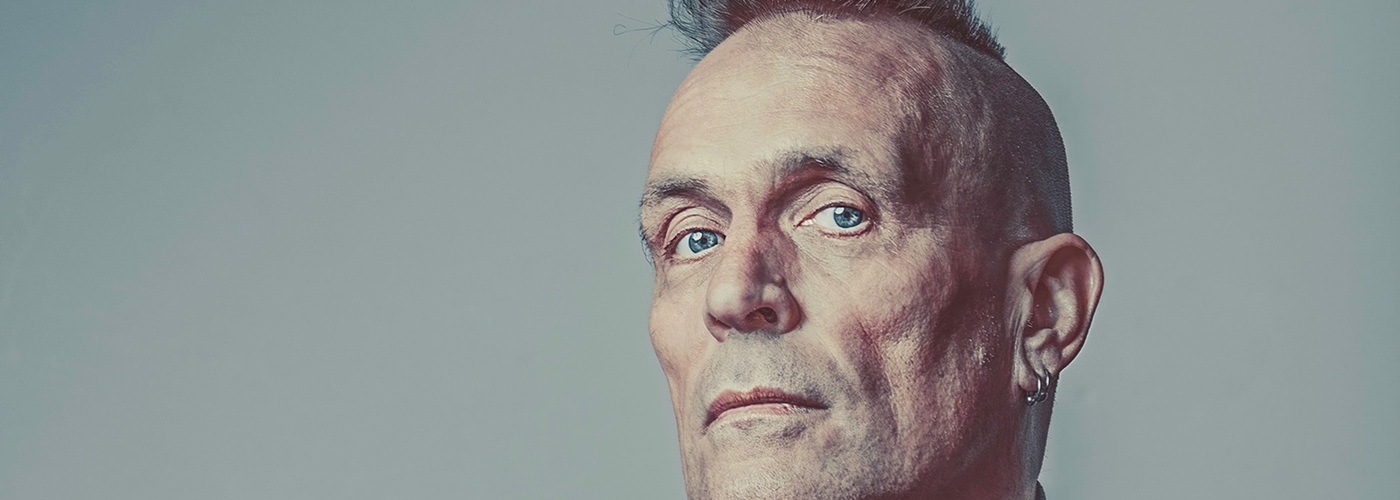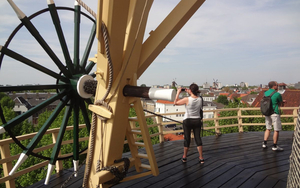The best-selling author, musician, journalist (and more) shares life stories ahead of upcoming tour
Author, musician, journalist, presenter and pundit, John Robb, will be heading out on an extensive UK tour in 2024.
The 22-date tour, titled ‘Do You Believe In The Power Of Rock N Roll’ will see John discuss everything from his recently released book ‘The Art Of Darkness: The History of Goth’ to his experience being the first person to interview Nirvana, his coining of the term ‘Britpop’ and his adventures on the post-punk frontline.
Writer Harley Young caught up with John ahead of his tour to talk about all things goth, modern-day music and to delve deeper into that infamous first interview with Nirvana frontman Kurt Cobain.
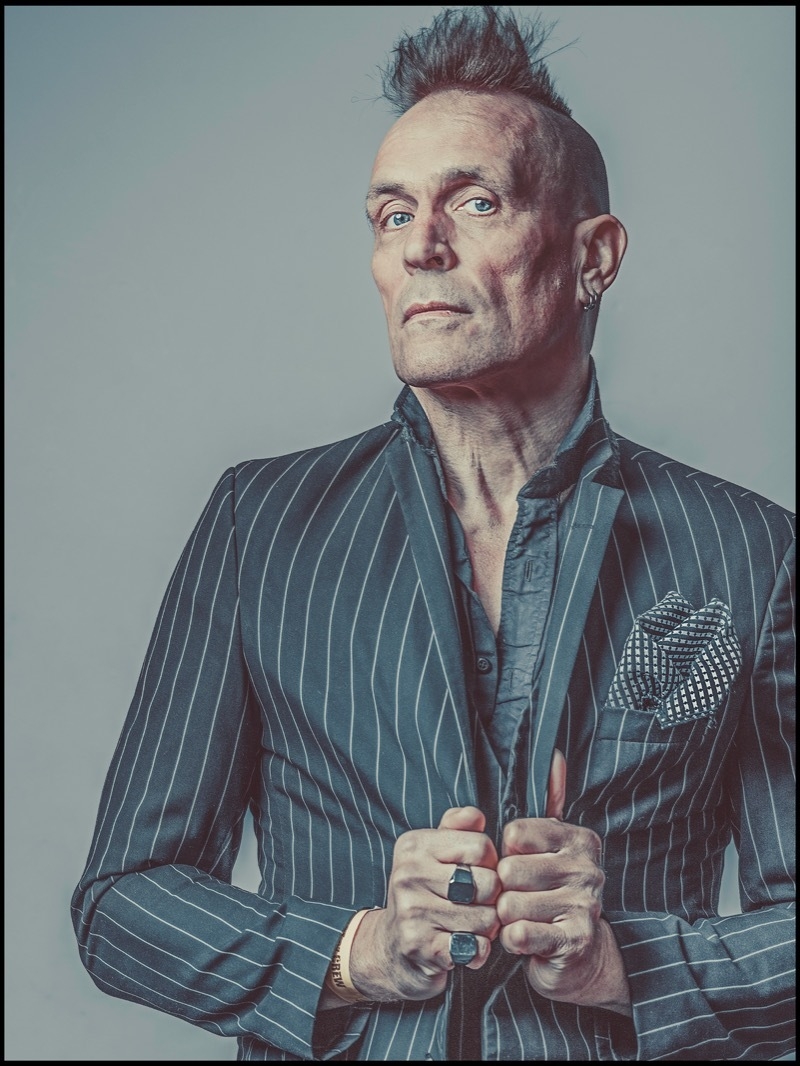
We helped Nirvana get their amps up and down the fire escape. It was a very hands-on existence.
How did you choose the venues for your upcoming tour?
A promoter got in touch after I did my goth book tour last year. It went really well, a lot of people went to it. He spotted that and said to me ‘You should go out and talk about all that, plus all the other stuff you’ve done in music over the years.’
He booked the tour around all these cool little theatres. About a day later, he came back to me with a list of dates. I thought ‘Wow, that was quick.’ It seemed very effortless.
I thought it would be three or four dates initially, but it’s great because I love being on the road.
How are ticket sales going at the moment?
Really good. A few dates are nearly sold out. We’ve still a few months to go before the start of the tour, but it’s looking really good.
What can people expect from the tour?
Well, it's going to run in two halves. The first half - obviously I can't do my whole music life in about an hour because there's quite a lot of stuff - but there’ll be some cool stories, like being the first person to interview Nirvana and so on.
Then the second half will likely be an ‘In Conversation’ style chat with someone from those towns. Obviously not every town as some of the towns are really small, but they’ll be varied. There’ll be some people from bands and, the person I’m looking to get for one of the dates, is a guy who’s written a best-selling book about palaeontology because it's a fascinating subject.
It’s good to kind of wander off from the direction people are expecting you to go. We’ll be looking at something that’s even more ancient rock, in a sense.
Then the last 20 minutes will be a Q&A with the audience. I say 20 minutes, I’m sure it’ll last for hours. The whole thing is supposed to be around two hours but I think it’ll probably end up being about four.
Image: John's book; The Art Of Darkness: The History of Goth
You mentioned being the first person to interview Nirvana there. How did that come about?
Sub Pop Records had been around for a bit, but there was a cassette of Love Buzz, the first single by Nirvana, going round.
Everyone was going ‘Oh, this isn’t as good as the other bands.’ but as soon as I heard it I thought ‘Wow. His voice is amazing. So captivating.’ which is an obvious thing to say now, but at the time everyone kept saying to me ‘How do you like this?’
I thought [Kurt] sounded like the oldest person in the world singing in a young person’s body. He sounded completely world weary. I didn’t know anything else about them, just that. But I arranged an interview with their label and that was that. I had no idea that they’d be the biggest band in the world.
As a music writer, we don’t work in A&R. We just flag up stuff that we’re into. Some of it does really well and, some of it…you’re still the only person who likes it. Nirvana could have been that.
Tell us more about that famous interview with Kurt Cobain.
I actually phoned him up at his mum’s house in Aberdeen, Washington where he lived at the time. I can remember his mum on the phone shouting upstairs ‘Kurt, there’s somebody on the phone for you.’
He’d never done an interview before so it was like starting fresh. No deep questions. Just whatever you had to ask. This was pre-internet so you couldn’t look the person up, I had to work him out from a two-line press release of a band I’d never really heard of.
Six months later I flew out to New York to interview them and saw them play Maxwell's in Hoboken to a room of about 20 people. They smashed all their gear up, it was a great gig. We stayed with them for five days in New York City as well, because there’d never be any hotels.
We’d get there and say ‘Where are we staying?’ and they’d say ‘Well, you’re staying with the band’. There were two bands and us squashed in this tiny room in the middle of the summer in New York, virtually back to back on the floor. We helped [Nirvana] get their amps up and down the fire escape. It was a very hands-on existence.
At the time, we thought ‘Oh, it’d be nice to have a hotel.’ but it was good because I got to know them properly. It wasn’t just a 30-minute interview. I spent days hanging out with him. I interviewed them again towards the end, too.
What do you think of today's music in comparison to back then?
The level of bands now is really high. It’s not like when I started off with The Membranes, we couldn’t even play anything properly for two years.
The first gig we did, we didn’t know how to tune guitars. We’d never plugged them into amps. We didn’t know what chords or scales were. We just thought you hit the guitar and noise came out. It was so out of tune.
You’d never see a band like that now. I think it’s good, in a sense, that bands these days have an idea of what they’re doing. I mean, for us, it was perfect punk rock DIY and we sort of worked it out backwards. That really suited what we were. But my advice to anybody is to probably not do it that way round. Sort of half work it out and then put yourself back into it.
I feel sorry for new bands. Now, you’re not only competing with 70 years of rock history, but you’re also competing with 70,000 other bands out there. The slices of the cake get thinner and thinner and the money you could potentially make isn’t really that much anyway because of streaming platforms and things like that.
It's really difficult to find space to exist. Not that you should expect to get paid by the world for your musical doodlings - but it's kind of nice, isn’t it?
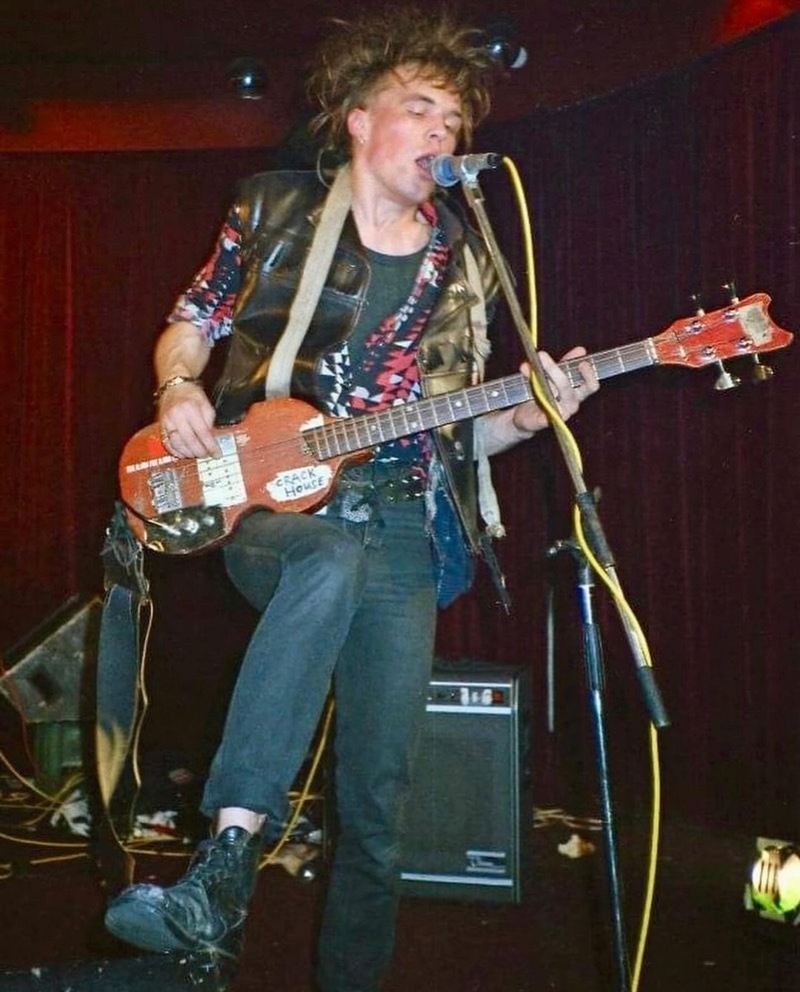
Let’s look at how social media has changed music. Do you think some people make music (or even TikTok/YouTube videos) because they want to, or because they feel they have to to be seen?
People need some kind of affirmation. ‘Why am I here?’
Maybe once it was religion and now it’s TikTok. It’s kind of cool in a sense, as long as you’re not screwing people over. You have to be your own version - not just a version of somebody else.
In a way, this process did start with punk and the democratisation of creativity. When I was growing up, I loved glam rock, people like David Bowie. To us, you couldn’t possibly be David Bowie. We didn’t realise he was a normal person because he just made these amazing records and looked so alien - we thought he came from outer space.
That process has been accelerated so much now that you don’t even need to be in a band to be cool. You can just make an interesting social media channel, and that’s okay. As long as it doesn’t mean that people start to believe they’re not as good looking as someone or not as cool as somebody else. All that stuff doesn’t matter. Everybody is a good version of themselves.
You don’t have to be a good version of Brad Pitt or so on, you can just be you and that’s it. That’s enough.
That’s the downside of it, but the upside is that you’re not just passive consumers in a sense. You don’t have to buy somebody else’s records if you don’t want to. You can make your own as well.
It’s complex, but then things always change. It’s funny when people complain about all the differences nowadays. Yes, that’s right, it is different - that’s what’s meant to happen. Things always change in culture.
I love the tsunami of culture. You can’t possibly embrace it all. Every now and then there’s a little bit you can hold onto and appreciate if you’re really into it, but there's always going to be parts you miss.
I remember when I met John Peel years and years ago. He used to get really stressed out about missing bands, that’s back when you’d only get 40 cassettes. Now, it’s impossible to keep track of it all.
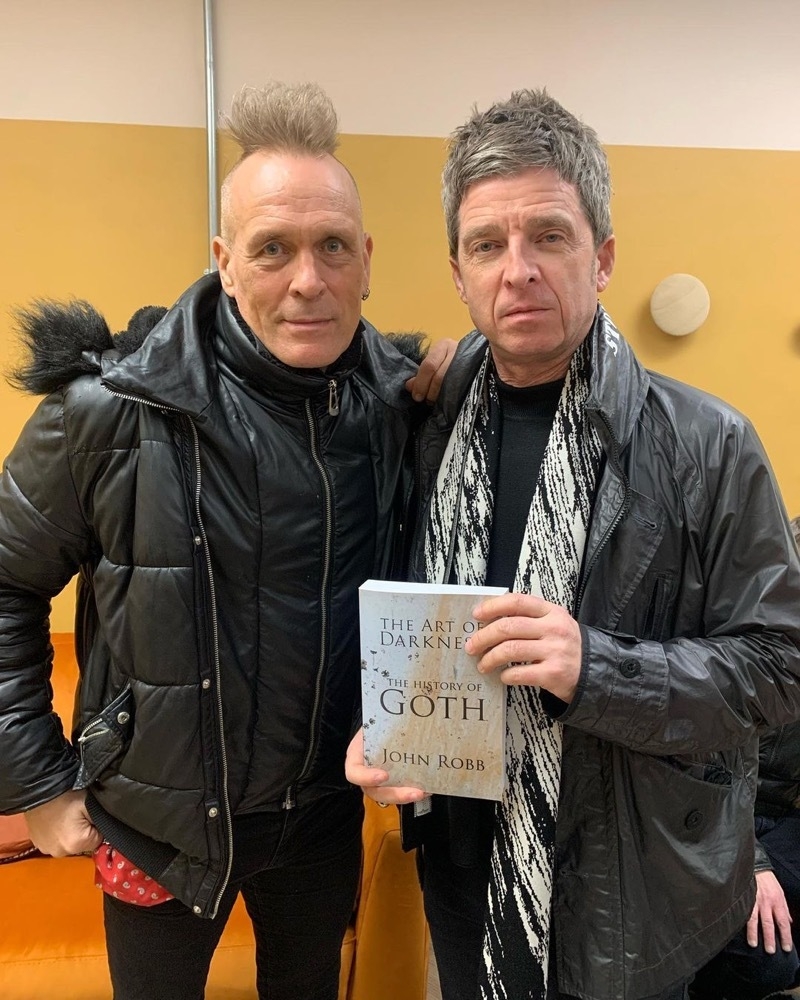
Would you say music taste is a spectrum?
I’d say it is. It’s one of the reasons that I personally write because I'm trying to work out why the hell I think ‘Oh, I like that. Why? That’s mad. It doesn’t even fit into anything else I like.’
I’m fascinated by that. You can also like the music for the music, or for what the lyrics are about or what that person or band stands for.
Your book, The Art of Darkness: The History of Goth, looks at the music of the subculture as well as the fashion and other elements. What’s one record that every goth should have on their shelves?
Probably the most defining, most perfect record, the moment when it all got defined for what came afterwards, is Bela Lugosi's Dead by Bauhaus - a remarkable record. Obviously there was similar music before but nobody really called goth ‘goth’ at the time. Back then it was just ‘alternative post-punk’ really.
Bauhaus thought they were a punk band, they didn’t have any notion that they were inventing a whole new thing. That song is a really great piece of avant garde art rock. There’s that dark humour that's almost spooky at the same time.
As for an album, that would have to be The Scream by Siouxsie and the Banshees.
Siouxsie was the icon of the whole scene and everybody, especially women of the time, would create their own versions of Siouxsie as she always looked amazing. But, musically, it’s an amazing record. Kenny’s tribal drumming was a game changer, John’s guitar playing, those woody baselines and the overall sound of the record…the texture, the atmosphere. It was a real game changer and I don’t think it gets the credit it deserves.
I think, because Siouxsie is so iconic as a figure, people forget that she made really brilliant records.
Kicking off in Selby on the 22nd March, the 22-date tour will see John speak at venues across the nation, concluding in Edinburgh on 9th May. The full list of dates can be found below.
MARCH
- 22 Selby Town Hall - Tickets and details here
- 23 Chorley Theatre - Tickets and details here
- 27 Kendal Brewery Arts - Tickets and details here
- 28 Sale Waterside - Tickets and details here
- 29 Halifax Square Chapel - Tickets and details here
APRIL
- 10 Sheffield Leadmill - Tickets and details here
- 11 Pocklington Arts Centre - Tickets and details here
- 12 Buxton Pavillion Arts - Tickets and details here
- 18 Worcester Huntingdon Hall - Tickets and details here
- 19 Bristol Folk House - Tickets and details here
- 20 Southampton The Attic - Tickets and details here
- 21 Cambridge Junction - Tickets and details here
- 23 Colchester Arts Centre - Tickets and details here
- 24 Norwich Arts Centre -Tickets and details here
- 26 Chester Storyhouse Garrett - Tickets and details here
- 27 Liverpool Philharmonic (Music room) - Tickets and details here
- 28 Leeds The Old Woollen - Tickets and details here
MAY
- 2 Brighton Komedia -Tickets and details here
- 3 Woolwich Works - Tickets and details here
- 4 London 21 Soho -Tickets and details here
- 9 Edinburgh Voodoo Rooms - Tickets and details here
Follow Harley Young on X @Harley__Young
Get the latest news to your inbox
Get the latest food & drink news and exclusive offers by email by signing up to our mailing list. This is one of the ways that Confidentials remains free to our readers and by signing up you help support our high quality, impartial and knowledgable writers. Thank you!

Join our WhatsApp group
You can also get regular updates on news, exclusives and offers by joining the Manchester Confidential WhatsApp group.






